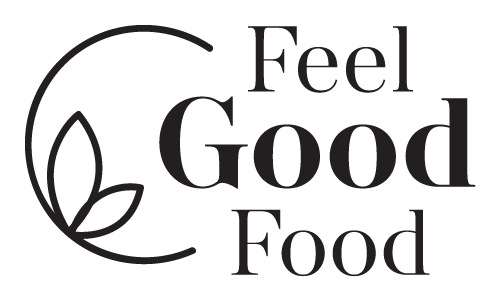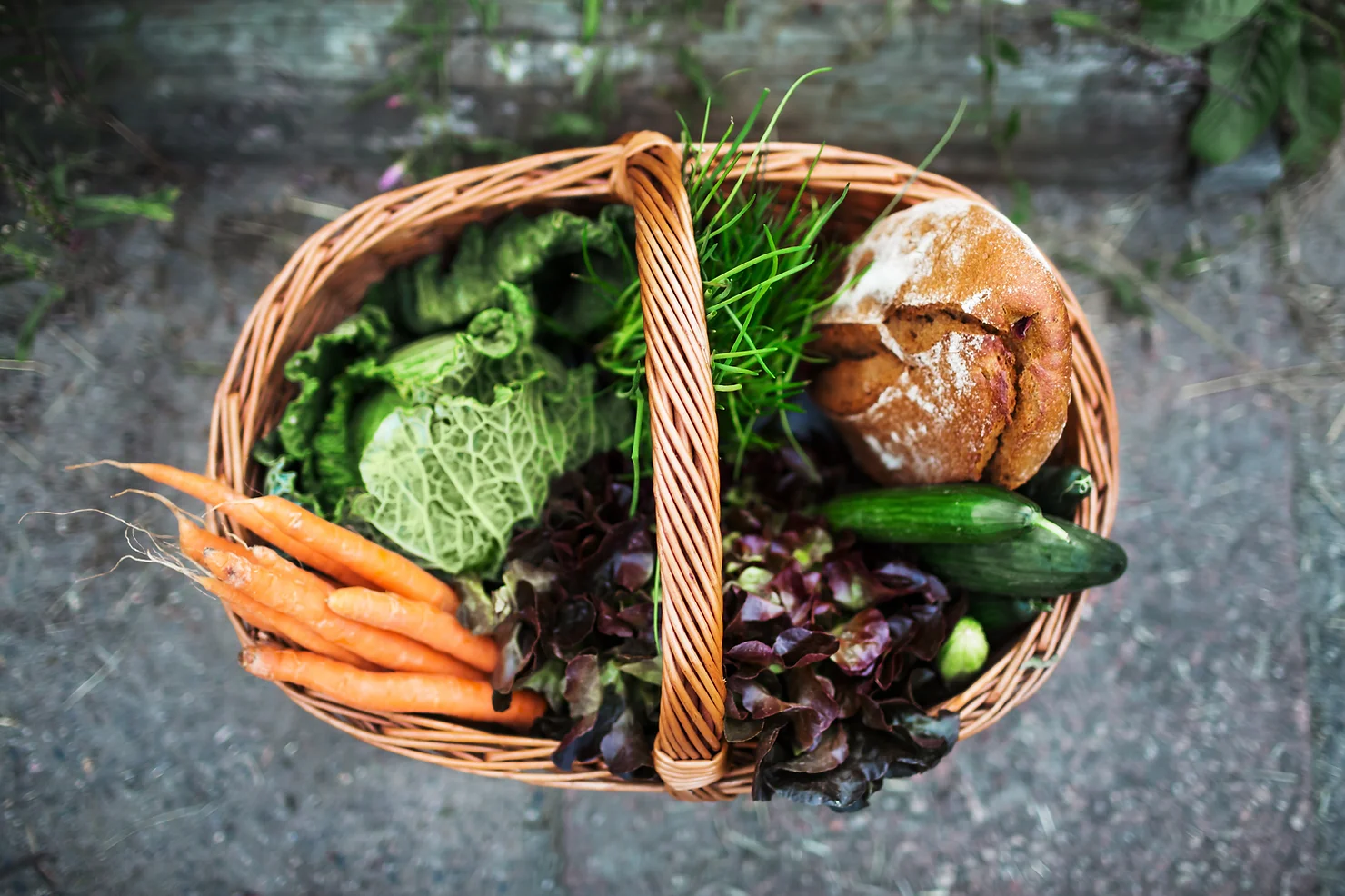Whether motivated by health, ethical or environmental reasons, plant-based diets are more popular now than ever. Global consumption of meat has increased rapidly over the past 50 years. Food production is now one of the leading causes of greenhouse gas emissions and the largest contributing factor in habitat loss and extinction, with millions of acres of forest felled each year to make way for livestock production and palm oil plantations.
There are many studies demonstrating that a plant based diet can be an excellent decision for health too, and may help to reduce chronic conditions, improve energy and aid weight loss, but there are certain nutritional considerations to take into account when food groups are removed from the diet.
Here are my Six Simple Steps to Optimum Nutrition if following a plant based diet:
Tip 1: Eat Whole-foods
It is easy to miss out on essential nutrients, if relying on refined carbohydrates and heavily processed vegan products, many of which are made from processed soy. Aim to base your meals around whole foods, fresh fruits, vegetables, and legumes, and reduce the intake of processed foods wherever possible. This way you will reap all the health benefits of a nutrient-rich well-balanced diet. If you are concerned about the time it will take, then meal planning and batch cooking can help. Why not trial a recipe box, Gousto and Mindful Chef offer delicious plant based options. Recipe boxes can help to kick start the healthy habit of cooking from scratch and expand your repertoire.
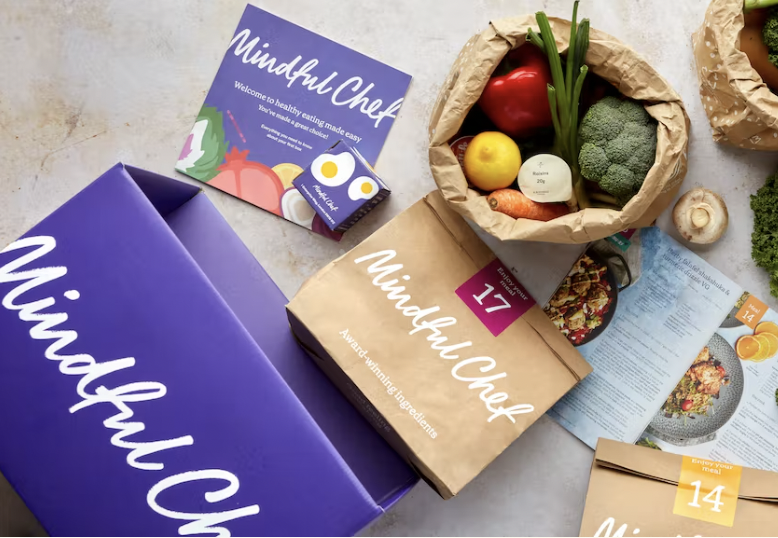
Tip 2: Plant Based Protein Sources
Protein forms the building blocks of the body, involved in growth, maintenance and repair of muscles and other body tissues. The recommended daily intake of protein is approx 1g per kg body weight. Vegans may be at higher risk of deficiency, so including a form of plant-based protein at every meal should provide you with adequate protein. You can also supplement your diet with high-quality protein powder, which you can add to your morning smoothie or porridge.
Excellent forms of vegan protein are pulses, whole grains, soy products, and nuts and seeds. Try to avoid highly processed plant-based protein/ meat substitutes, although these may help short term in the transition from a meat-based diet.
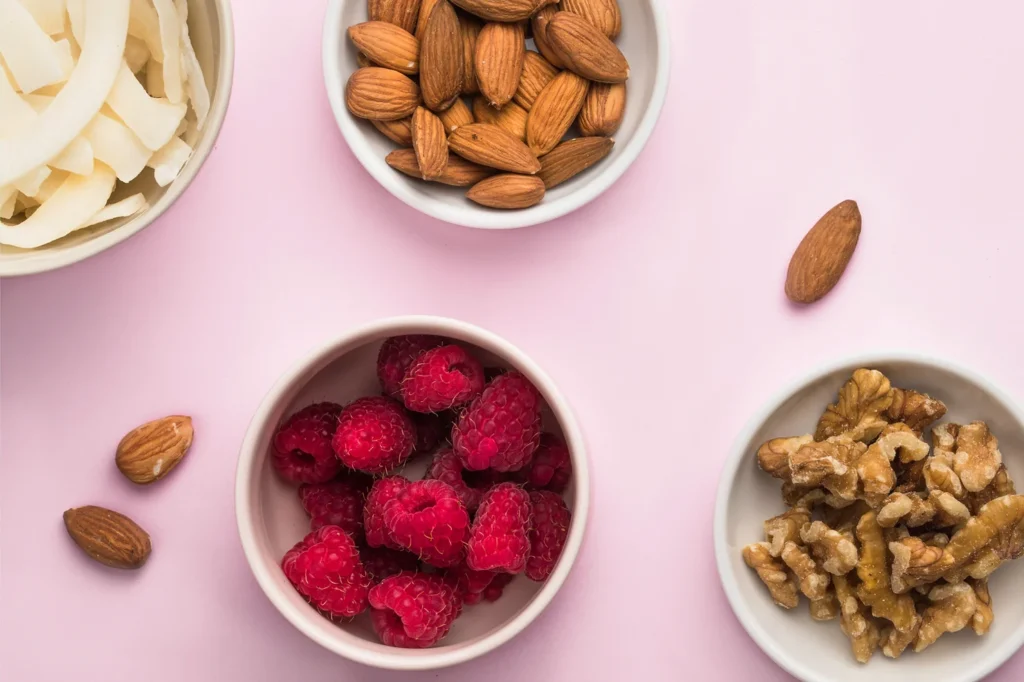
Tip 3: Plant based Essential Fat Sources
Fats and carbohydrates work together to provide energy in the body and help to maintain healthy cell membranes and cognitive function throughout life. A vegan diet is low in saturated animal fats, but the ratio of Polyunsaturated fats Omega 6 3 and 9 fats needs some consideration.
Essential fats must be obtained from the diet as our bodies can’t produce them. Gram for gram, dietary fats supply more energy than carbohydrates, so keep us fuller for longer.
Essential fats from avocados, nuts, seeds, and extra virgin olive oil are all important components of a healthy vegan diet. Aim to include a source of essential fats at each meal.
The most stable fats to cook with are solid at room temperature. Opt for coconut or olive oil, and avoid trans fats, which are found in processed foods and margarine, which are unstable and cause damage to the structure of fats in the body.
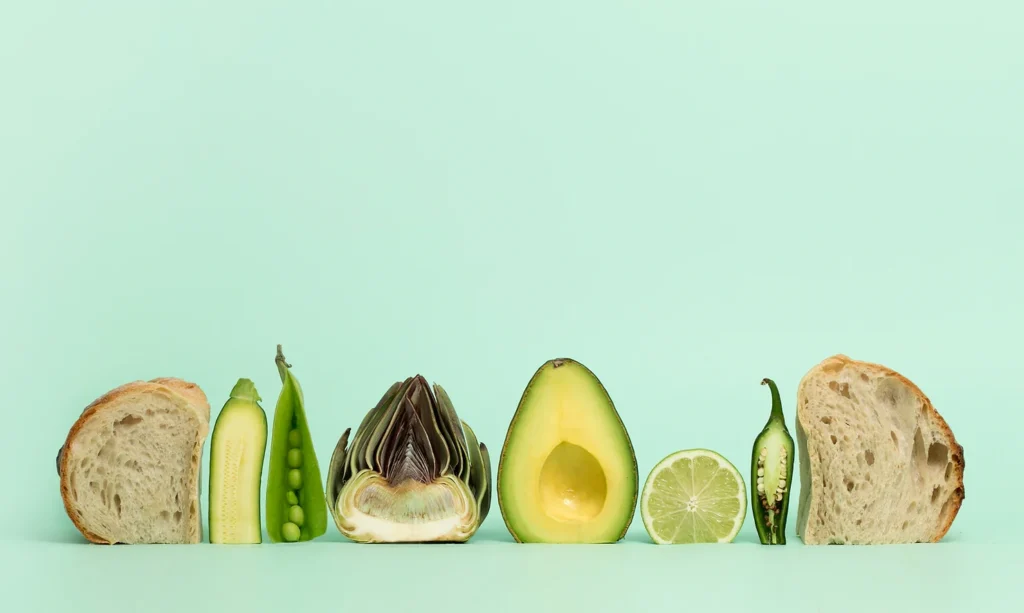
Tip 4: Supplements For a Plant Based Diet
Here are my go to supplements to bridge the potential nutritional gaps when following a plant based diet, however If you are under medical supervision, or pregnant or breast feeding, please consult a nutritional professional or your doctor before use.
EPA and DHA, the types of omega-3 fats that have been most heavily studied for their physiological and structural cell membrane benefits, are not present in any plant foods except algae oil, so It is worth considering supplementing here. Humans can produce EPA and DHA in small amounts from ALA, which is present in flaxseed oil, canola oil, walnut oil, soybean oil.
B12 is found primarily in animal foods, it is involved in the normal functioning of the nervous system and red blood cell maturation, it helps to metabolise fats and improves liver health. Vegans may get small amounts of B12 from bacteria on foods such as seaweed, nutritional yeast and fermented soy products such as tempeh and fortified foods. It is generally recommended to take a vitamin B12 supplement, to reduce the risk of deficiency, which may result in raised homocysteine levels, nerve damage or anemia. See below for my recommended supplements for vegans. (If you are on medication, it is important that you consult your doctor before taking supplements).
Vitamin D sourced from algae, helps form and maintain strong bones, maintain blood levels of calcium and phosphorus and is required for the normal functioning of the immune system. Many people in the northern hemisphere may be Vitamin D deficient in the winter months, and It is advisable to supplement during this time. Some forms of vitamin D3 can be derived from an animal source (such as sheep’s wool).
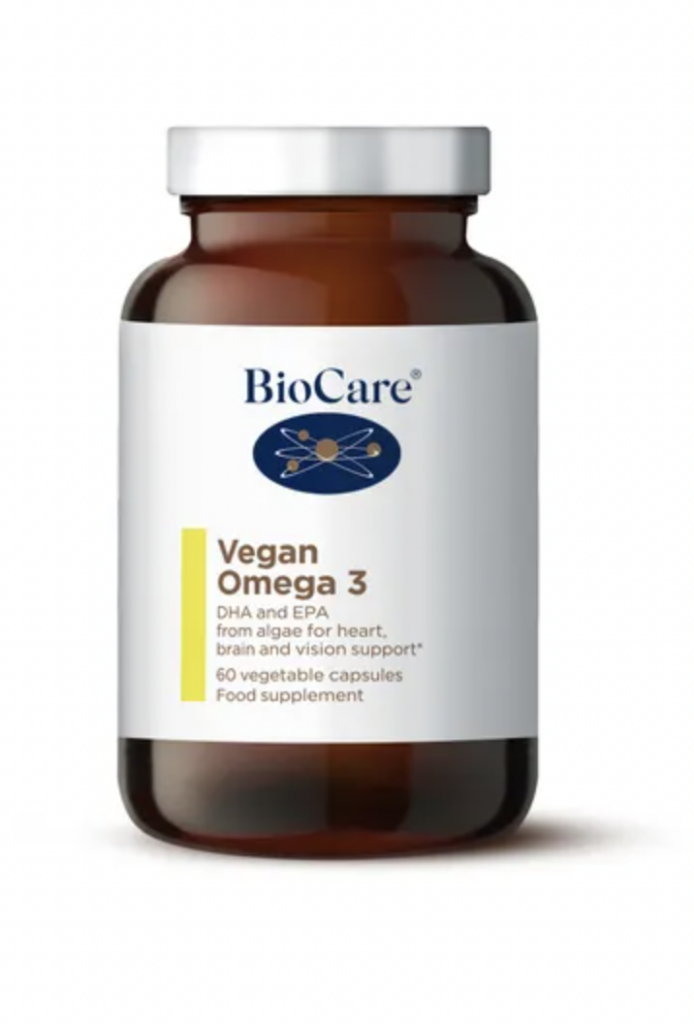
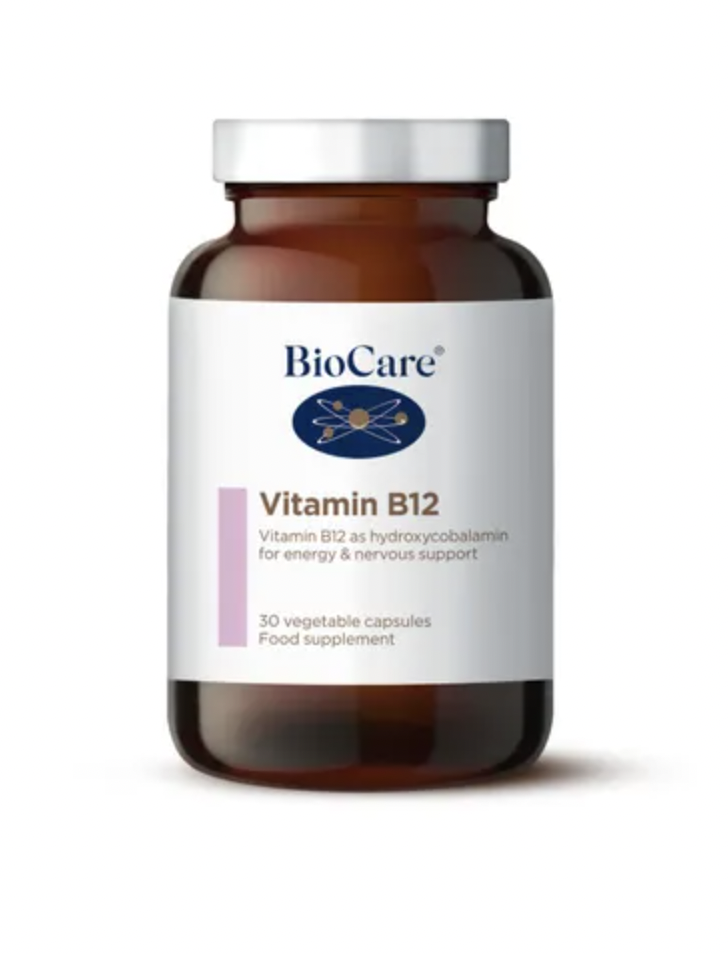
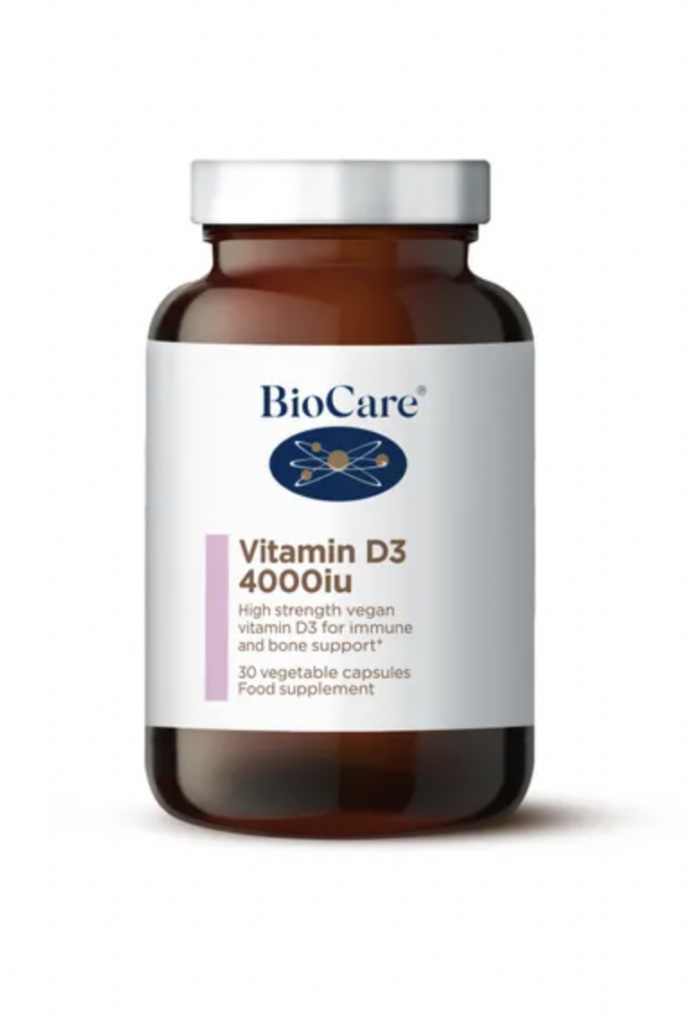
Tip 5: Plant Based Calcium and Vitamin D Sources
Calcium is important for the health of bones and teeth is also involved in muscle contraction and hormone release. If there is insufficient calcium in the diet, the body takes calcium from the bones, which can weaken bones over time.
Dairy is often considered to be the most calcium-rich food, but there are many non-dairy sources too, such as sesame seeds, almonds, broccoli, leafy greens, beans, dried fruit and calcium set tofu. Many plant milk and yogurt-alternatives, as well as bread, are also fortified with calcium in the UK.
It’s important to note that some foods interfere with calcium in the body. Oxalates are naturally occurring compounds in vegetables such as spinach, they can bind to calcium, limiting absorption. Therefore It is advisable to rotate your leafy greens, switching up spinach for kale, chard, bok choy, or cabbage. Caffeine and carbonated drinks also interfere with calcium absorption.

Tip 6: Plant Based Iron Sources
Iron is important for making red blood cells, which carry oxygen around the body. Low iron may lead to low energy and anaemia. Rich sources of plant-based Iron are found in lentils, beans, soy products, nuts and seeds, leafy greens. These and many other plant foods contain iron, but only animal foods provide the more bioavailable form of haem iron. Iron levels should be checked first before considering supplementation, as iron is stored in the body and high levels can lead to toxicity.
If you are not sure if a plant based diet is right for you, or if you would like guidance to make sure you are covering all your nutritional needs, you may consider working with a Nutritional Therapist such as myself or my colleagues at ANP or BANT, who can help to gain clarity around food choices, and design a diet that works for you. It doesn’t have to be an all or nothing approach either, perhaps a flexitarian approach is right for you, starting with #meatfreemondays or becoming a more responsible omnivore, cutting back on processed meat and supporting your local farms.
Becoming more conscious about your food choices, eating more plants and reducing the quantity of meat and processed foods in your diet can all have significant health, ethical and environmental benefits.
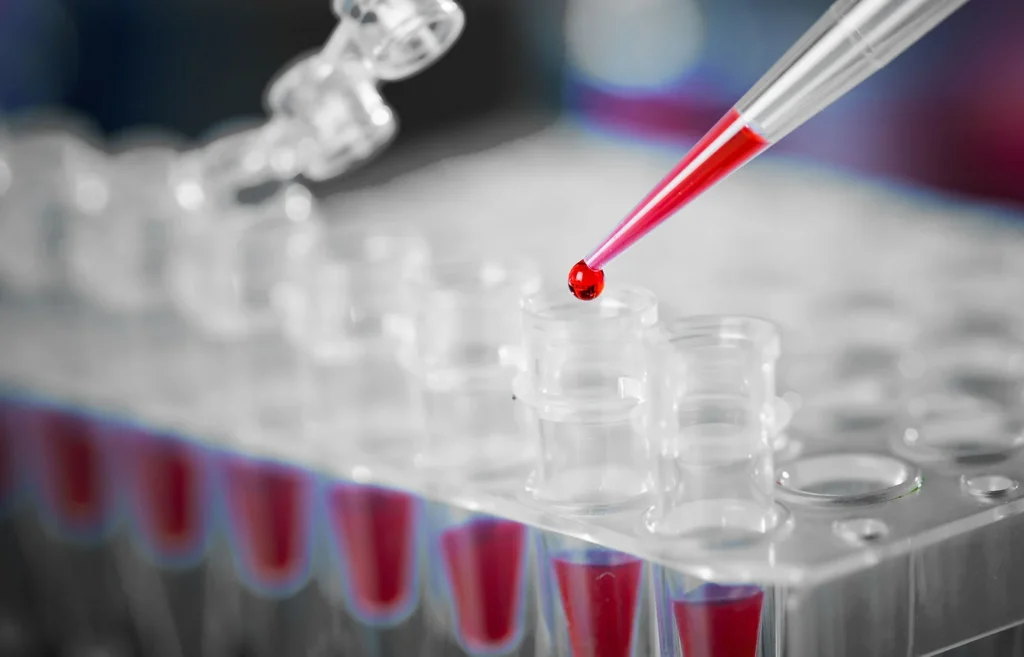
As a Nutritional Therapist, I help my clients to cultivate a healthy relationship with food. If you would like to explore further optimum plant based nutrition, or personal advice on recommended supplements, I offer one to one online support and can devise a bespoke nutrition plan for you. Why not book a FREE Mini Health Review, and explore Nutritional Therapy options to suit your needs. You can also subscribe to my bi-monthly newsletter with nutrition tips, recipes and special offers on the products and services I offer (check the link in footer).
Wishing you and your families well.
Lucie 🙂
BA, Dip NT, mBANT
Useful resources for vegans:
Find plant-based food whilst traveling: Happycow.com
